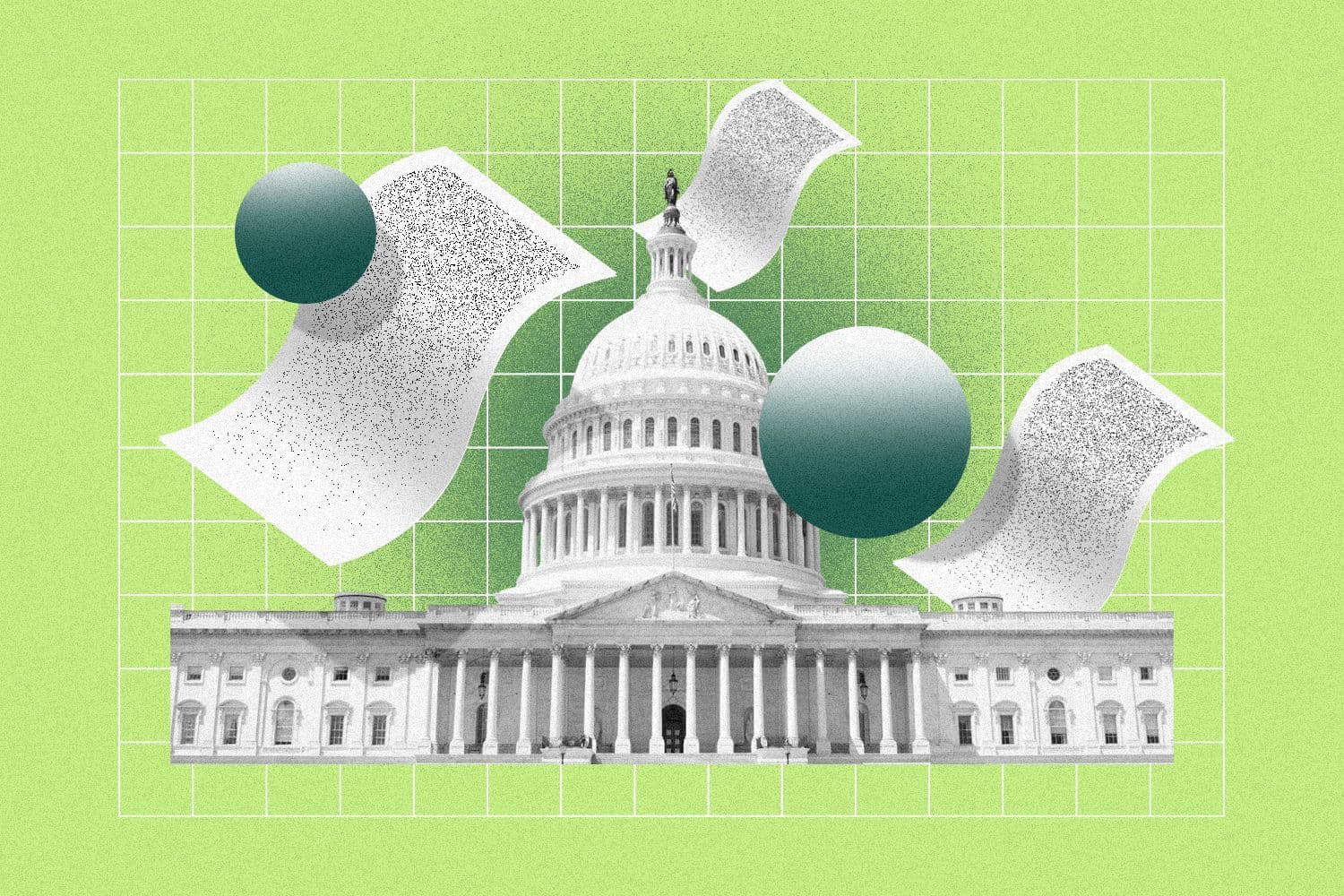Legislative lowdown: Federal government sees pushback on joint-employer, overtime rules
Two pieces of federal legislation, including one set to take effect next month, are facing pushback from lawmakers and business groups.

Francis Scialabba
• 4 min read
Courtney Vinopal is a senior reporter for HR Brew covering total rewards and compliance.
Two pieces of federal legislation, including one set to take effect next month, are facing pushback from lawmakers and business groups.
Here’s what HR should know about the scrutiny being directed toward the National Labor Relations Board’s (NLRB) joint-employer rule, as well as the Department of Labor’s (DOL) proposed overtime rule.
Business groups sue to block joint-employer rule. A number of business groups, including the Chamber of Commerce, International Franchise Association, and American Hotel and Lodging Association, sued the NLRB on Nov. 9 to block a new joint-employer standard adopted by the board.
The rule, which is set to take effect Dec. 26, would make it easier for two businesses to qualify as a joint-employer of a group of employees. If two companies are considered a joint-employer, they are then legally liable for one another’s actions—including unfair labor practices—and must bargain with unions representing the workers they oversee.
The rule could open up a pathway for more workers to unionize at big companies like McDonald’s or Amazon, the Associated Press reported, given these firms might be required to negotiate with workers employed by independent contractors or franchisees.
In a lawsuit filed in federal court, the business groups argued the new joint-employer rule is unlawful, and “replaces a clear standard, under which employers have tailored their business arrangements, with an arbitrary and uncertain standard that threatens chaos and indeterminacy in national labor relations across major industry sectors.”
By lowering the bar for two organizations to qualify as a joint-employer, the plaintiffs contend, the NLRB rule “renders irrelevant the extent of control necessary to make informed decisions and tradeoffs at the bargaining table.”
The standard also received pushback from lawmakers in Washington, DC who introduced a Congressional Review Act resolution seeking to overturn the rule. “The new rule saddles franchisers with the liability of individual franchise owners despite having no operational authority over the business’ employees,” the group of lawmakers, including Sens. Mitch McConnell and Joe Manchin, wrote in a joint statement.
Quick-to-read HR news & insights
From recruiting and retention to company culture and the latest in HR tech, HR Brew delivers up-to-date industry news and tips to help HR pros stay nimble in today’s fast-changing business environment.
SHRM takes aim at DOL’s overtime rule. The public comment period for a proposed DOL rule that would extend overtime protections to millions of workers closed on Nov. 7. The agency received more than 26,000 comments on the rule, including one from the Society for Human Resource Management (SHRM).
Though SHRM’s members support a “reasonable increase” to the minimum salary threshold for white-collar workers in salaried jobs, the proposed increase is a “considerable leap,” Emily M. Dickens, SHRM’s chief of staff, head of public affairs, and corporate secretary, wrote in a letter.
Under the proposed rule, so-called “executive administrative professionals” would receive overtime pay if they earn less than $55,000, up from a current threshold of $35,568.
“The nearly 55% increase from the current $684 per week threshold, implemented just four years ago, should give pause to the Division as to how this would impact the operations of multistate organizations across the country,” Dickens wrote.
SHRM also took issue with a provision of the rule that would automatically increase salary levels every three years, as well as the DOL’s plan to give employers 60 days to comply once a final rule takes effect. This compliance window is “simply insufficient time for many businesses to assess the final rule, identify impacted employees and roles, and decide and execute an organizational strategy and structural changes,” said the letter, which was cosigned by a number of SHRM state councils.
Quick-to-read HR news & insights
From recruiting and retention to company culture and the latest in HR tech, HR Brew delivers up-to-date industry news and tips to help HR pros stay nimble in today’s fast-changing business environment.